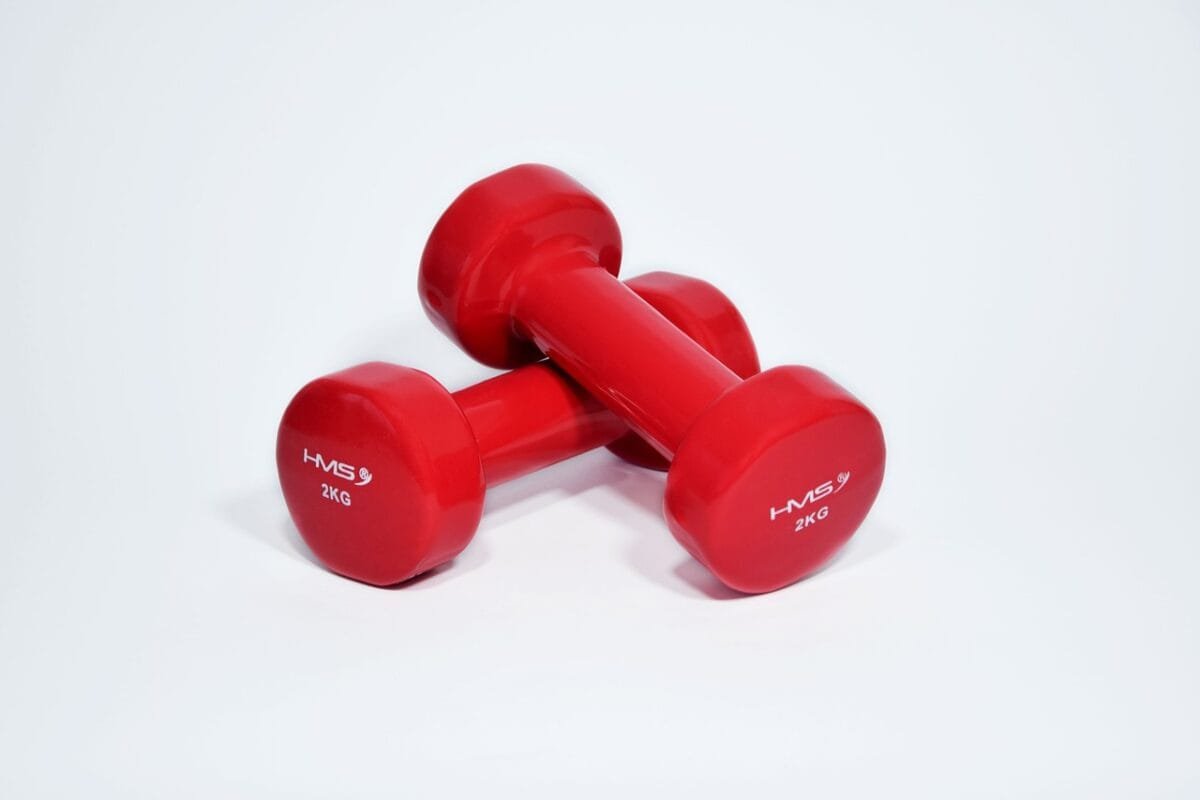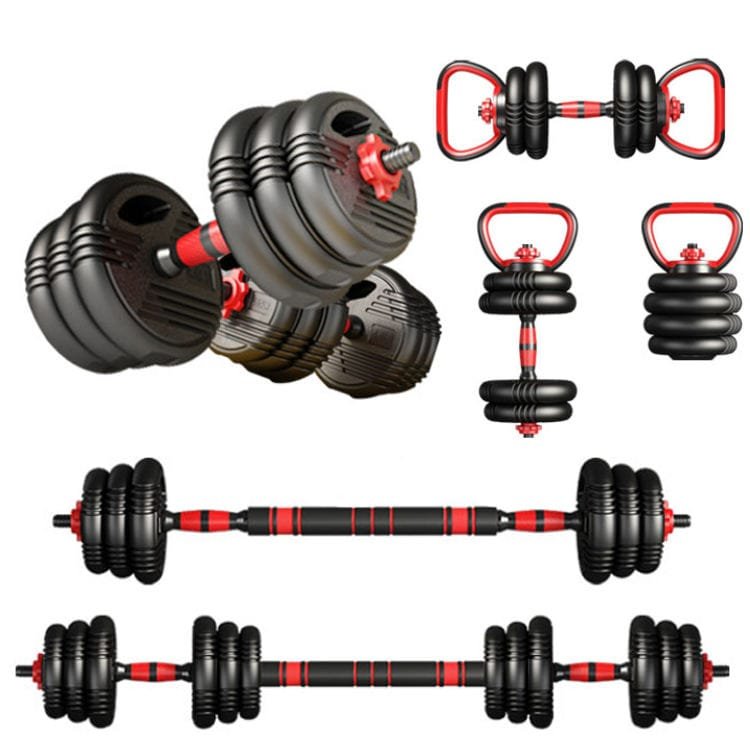Introduction to Dumbbells and Their Role in Fitness

Dumbbells are a fundamental and versatile piece of fitness equipment widely used in strength training and muscle building. These weights, typically consisting of a short bar with a weight on each end, can be found in various forms and sizes, catering to individuals at all fitness levels. Their design allows for easy handling, making them suitable for both home and gym environments. Dumbbells come in fixed weights or adjustable designs, enabling users to progress as their strength improves. Individuals use dumbbells in various exercises, including bicep curls, shoulder presses, and squats, to improve physical health, increase muscle mass, and enhance overall fitness.
Why the Question of FSA Eligibility Arises

The inquiry regarding the eligibility of dumbbells under Flexible Spending Accounts (FSAs) arises from a growing acknowledgment of the link between fitness and overall health. Flexible Spending Accounts are designed to provide employees the opportunity to utilize pre-tax dollars for a variety of qualified medical expenses. The fundamental goal of FSAs is to alleviate the financial burden associated with healthcare costs, thereby promoting a healthier lifestyle among employees.
As health awareness continues to rise, many individuals are keenly interested in maintaining their physical well-being through regular exercise. Consequently, equipment that facilitates this pursuit, such as dumbbells, becomes a focal point for discussions surrounding FSA eligibility. Individuals who prioritize their physical fitness often view expenditures on fitness equipment as integral to maintaining or improving their health. This mindset prompts questions about whether purchasing dumbbells could qualify as a reimbursable expense under their Flexible Spending Accounts.
Additionally, numerous health professionals advocate for regular physical activity as a vital component of preventative healthcare. This perspective may lead individuals to argue that investing in dumbbells, as part of a home workout regimen, can indeed be categorized as a legitimate medical expense. Given the overarching objective of FSAs to support health and wellness initiatives, the rationale behind including fitness equipment may seem reasonable to many.
However, it is crucial to note that while the intention behind using FSAs for fitness-related purchases reflects a proactive approach to health, the eligibility of such items is subject to specific guidelines. These guidelines often delineate which expenses are qualified, creating a complex landscape for those who wish to utilize their FSAs in this manner. Understanding these intricacies is essential for individuals who are contemplating investing in dumbbells as part of their health strategy.
General Eligibility Rules for FSA Reimbursement
Flexible Spending Accounts (FSAs) are designed to provide employees with a tax-advantaged way to pay for qualified medical expenses. According to IRS guidelines, these accounts can be used to reimburse various healthcare-related costs. However, it is essential to understand what qualifies as an eligible expense, as not all fitness-related items meet the necessary criteria. Generally, for an item or service to be reimbursable through an FSA, it must aim to alleviate or prevent a specific medical condition, and not just aim at general wellness or fitness.
Dumbbells and similar general-purpose fitness equipment are typically not eligible for reimbursement under an FSA. This is because they are regarded as items intended for general fitness, which does not fall under a qualified medical expense definition. The IRS emphasizes that for an item to qualify, it needs to be prescribed by a healthcare provider as part of a treatment plan for a specific medical condition. In such instances, the prescription acts as a linkage between the purchase and a medical need.
This differentiation is crucial; while exercise is significant for overall health, it does not automatically allow for FSA reimbursement unless it directly addresses a specific medical issue. For instance, if a healthcare professional prescribes the use of dumbbells as part of a rehabilitation program for conditions such as arthritis or obesity, there may be grounds for reimbursement. Thus, as determined by a healthcare provider, medical necessity dictates the eligibility of such expenses.
Understanding these guidelines is vital for maximizing FSA benefits and ensuring compliance with IRS regulations. Knowing whether a fitness item like dumbbells qualifies can help individuals make informed decisions about their health expenses and finances.
How to Determine Eligibility for FSA Reimbursement

Determining eligibility for Flexible Spending Account (FSA) reimbursement for dumbbells involves a structured approach. The first step is to consult with your healthcare provider. A prescription from a qualified medical professional can serve as an essential document to support your claim. Make an appointment with your doctor to discuss the potential medical necessity of using dumbbells for strength training, rehabilitation, or overall health improvement. If they believe that dumbbell exercises are essential for your treatment, they may provide a prescription that specifically states this, which will significantly enhance the likelihood of reimbursement.
Next, it is crucial to review the specific guidelines outlined in your FSA plan. Each plan may have different rules about what types of medical equipment or supplies are eligible for reimbursement. Check whether your FSA plan covers items related to physical health improvements, as dumbbells could fall under this category if supported by proper documentation. Familiarize yourself with any exceptions or limitations that might apply to your situation.
Once you have the necessary prescription and a clear understanding of your plan’s guidelines, gather and prepare the documentation for reimbursement submission. This typically includes receipts for the dumbbells, the prescription from your healthcare provider, and any other supporting documents required by your FSA administrator. Make sure all documents are clear and organized to facilitate a smoother reimbursement process.
If your dumbbells are deemed ineligible for reimbursement under your FSA, explore alternative financing options. Health savings accounts (HSAs) or other flexible spending options may provide additional pathways for funding. Additionally, many retailers offer payment plans or discounts, which can alleviate the financial burden of purchasing fitness equipment. By understanding and following these steps, individuals can effectively navigate FSA rules regarding dumbbells and ensure they make informed decisions about their health investments.
Holiday Sale
Up to 60% off
Get adjustable dumbbells at record-breaking prices.




